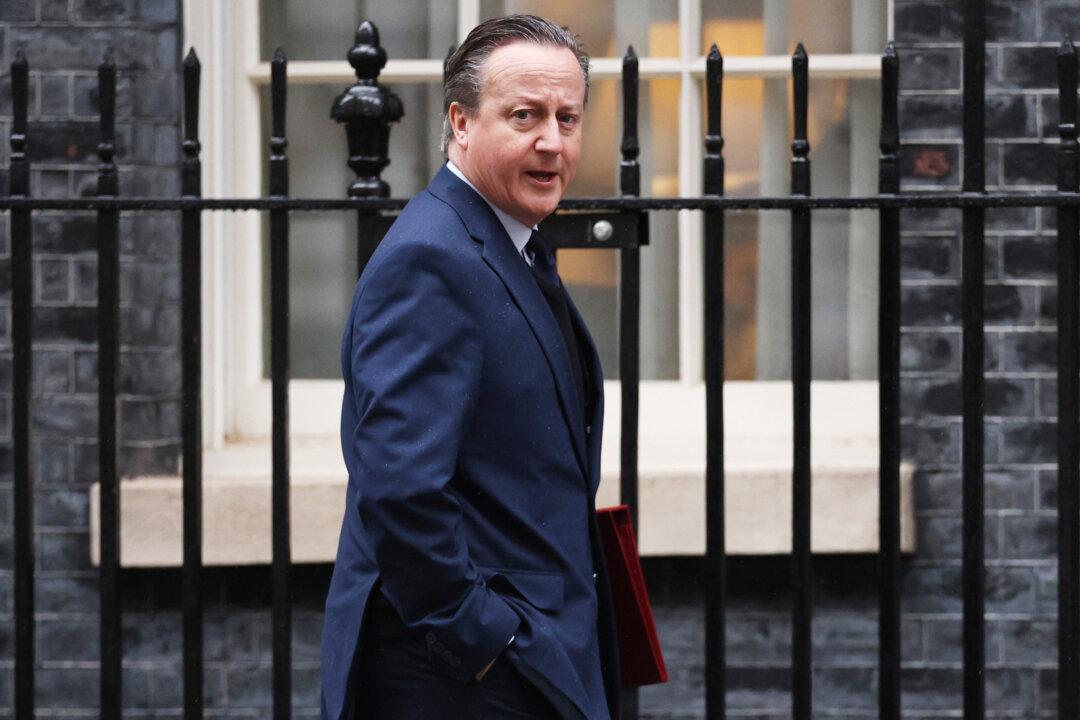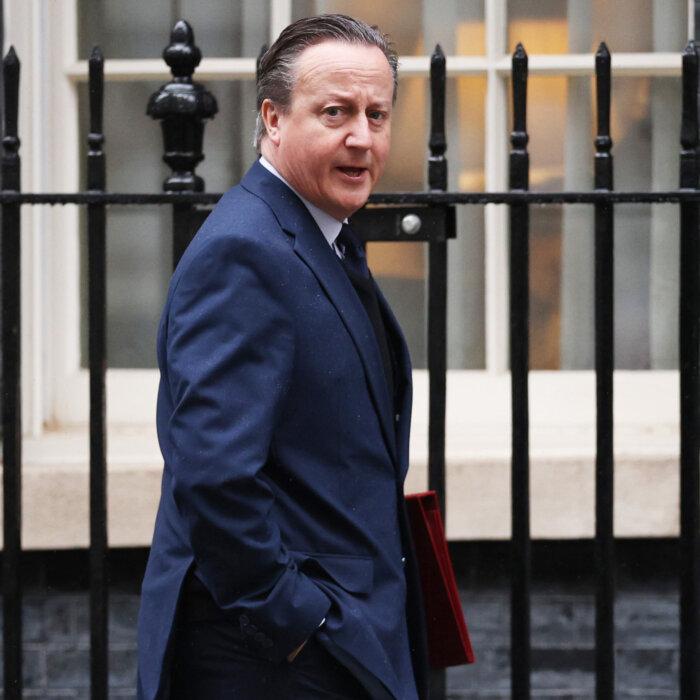The Foreign Office summoned Chinese Ambassador Zheng Zeguang on Tuesday over the Chinese regime’s “pattern” of hostile activities against the UK.
“Today, on instruction from the Foreign Secretary [Lord Cameron], the Chinese Ambassador was summoned to the Foreign, Commonwealth and Development Office [FCDO],” a spokesperson said in a statement.
“The summons followed Monday’s announcement that three people have been charged with offences under the National Security Act as part of an investigation led by officers from the Met Police’s Counter Terrorism Command. The foreign intelligence service to which the charges relate is that of the Hong Kong Special Administrative Region,” the spokesperson added.
On Monday, three men, Matthew Trickett, 37, Chi Leung Wai, 38, and Chung Biu Yuen, 63, appeared in court accused of agreeing to “undertake information gathering, surveillance, and acts of deception that were likely to materially assist a foreign intelligence service,” namely Hong Kong, and forcing entry into a UK residential address on May 1.
The defendants have not yet entered pleas to the charges and their trial almost certainly will not take place until spring 2025.
The FCDO said it was “unequivocal in setting out that the recent pattern of behaviour directed by China against the UK including cyberattacks, reports of espionage links and the issuing of bounties is not acceptable.”
The individuals were accused of offences including incitement to secession and subversion, and collusion with foreign countries or external forces.
One of the hunted activists who lives in the UK, Fin Lau, founder of Hong Kong Liberty, previously said he was beaten unconscious in London in 2020 by a gang of three people, who he suspected to be acting on behalf of the Chinese Communist Party.
Hacking Attacks
The summoning of the Chinese ambassador also came after the suspected hacking of a Ministry of Defence payment system by a “malign actor,” which media outlets claimed to be China, and after the government blamed Beijing for cyber attacks on the Electoral Commission and Parliament.Alicia Kearns, chairwoman of the Foreign Affairs Committee, welcomed the summoning of the Chinese ambassador, saying it’s “a relief to hear and long overdue.”
“Hostile interference on UK soil is a serious issue for which we should have absolutely zero tolerance,” she wrote on social media platform X. “We must be absolute on that with all countries.”
The Chinese Embassy accused the UK government of “anti-China political manoeuvring.”
The embassy said Mr. Zheng had made “further serious representations to the UK side,” and “urged the UK side to immediately correct its wrongdoing.”
Speaking at CYBERUK 2024, the government’s flagship cyber security event in Birmingham, Ms. Keast-Butler said the Chinese regime has “built an advanced set of cyber capabilities and is taking advantage of a growing commercial ecosystem of hacking outfits and data brokers at its disposal.”
She also said it is GCHQ’s top priority to respond to the scale and complexity of challenges posed by the Chinese regime, and the agency is devoting “more resource to China than any other single mission.”
One female student, referred to with the pseudonym “Rowan,” told Amnesty how within hours of attending a commemoration of the 1989 Tiananmen Square massacre, she heard from her father in China, who had been told by security officials to “educate his daughter ... not to attend any events that may harm China’s reputation.” The same happened a year later.
Rowan was shocked since she had not used her name or posted online about her involvement in the protest, Amnesty said.







